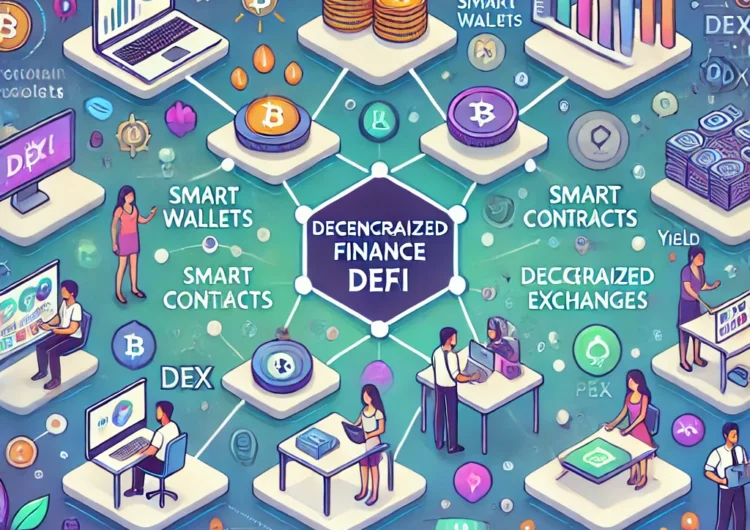Decentralized Finance, commonly referred to as DeFi, represents a revolutionary shift in the financial landscape, leveraging blockchain technology to create an open and permissionless financial system. Unlike traditional finance, which is centralized and governed by banks and financial institutions, DeFi operates on decentralized networks, primarily built on the Ethereum blockchain. This article explores the key features, benefits, risks, and the future of DeFi.
Key Features of DeFi
- Smart Contracts: At the heart of DeFi are smart contracts—self-executing contracts with the terms of the agreement directly written into code. They automatically enforce and execute transactions when predetermined conditions are met, reducing the need for intermediaries and minimizing the risk of fraud.
- Open and Permissionless: DeFi platforms are accessible to anyone with an internet connection, allowing users from around the world to participate without needing to go through traditional banking systems. This inclusivity empowers individuals who may not have access to traditional financial services.
- Interoperability: Many DeFi applications are designed to work together seamlessly, allowing users to move assets and interact across various platforms. This interoperability enhances user experience and expands the possibilities for financial services.
- Transparency and Security: Transactions on DeFi platforms are recorded on public blockchains, providing transparency and traceability. Users can verify transactions and the underlying code, fostering trust in the system. Additionally, the decentralized nature of these platforms reduces the risk of single points of failure.
Benefits of DeFi
- Financial Inclusion: DeFi opens doors for unbanked and underbanked populations, offering them access to financial services such as lending, borrowing, and trading without the need for a bank account.
- Reduced Costs: By eliminating intermediaries, DeFi can lower transaction fees and offer better rates for users. This cost-effectiveness is particularly advantageous for cross-border transactions.
- Increased Control: Users have full control over their assets and funds. They can manage their investments and make transactions without relying on a third party.
- Innovation: The DeFi space is a hotbed for innovation, giving rise to new financial products and services such as decentralized exchanges (DEXs), yield farming, liquidity mining, and stablecoins.
Risks and Challenges
While DeFi presents exciting opportunities, it is not without its risks:
- Smart Contract Vulnerabilities: Bugs or vulnerabilities in smart contracts can be exploited by malicious actors, potentially leading to significant financial losses.
- Market Volatility: The prices of cryptocurrencies can be highly volatile, posing risks for investors who engage in lending, borrowing, or trading on DeFi platforms.
- Regulatory Uncertainty: As DeFi continues to grow, regulatory bodies are grappling with how to govern this new financial landscape. Uncertain regulations can create risks for users and developers alike.
- Lack of Consumer Protections: Unlike traditional financial institutions, DeFi platforms often lack the safety nets that protect consumers, such as insurance for deposits.
The Future of DeFi
The DeFi ecosystem is rapidly evolving, with new projects and platforms emerging regularly. As the technology matures and more users become aware of its benefits, DeFi has the potential to transform the financial services industry. Key areas for future growth include:
- Integration with Traditional Finance: Bridging the gap between DeFi and traditional financial systems may lead to hybrid solutions that leverage the strengths of both.
- Improved User Experience: As competition increases, DeFi platforms will likely focus on enhancing user interfaces and simplifying complex processes to attract a broader audience.
- Enhanced Security Measures: Developers are continuously working on improving the security of smart contracts and DeFi applications, incorporating audits and insurance mechanisms to protect users.


